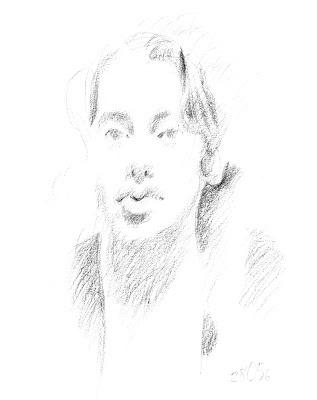
Name
Col Bebe
What was your life style like when you decided to follow Jesus?
I was a worldly individual with strong spiritual leanings, heading towards 40, living out of a small sholder bag, no money, praying for everything I needed, like a place to sleep each night, drinking, drugs, smoking, womanizing, but, trying to find out how to get closer to the God who, I had noticed, had been looking after me very well, for about 15 years.
What year were you baptized? How old were you?
1980. 39.
Where did you begin to worship and what was your first impression of the church?
Warringah church of Christ. They were sort of grey people, but I believed they had it right.
What difficulties / challenges did you have in striving to be like Jesus?
Before I was baptized my difficulty was finding the right church. After I was baptized my problem was stopping smoking. Everything else stopped, once I stopped smoking. After four months I left the church (gathering) for a woman. Four years later I returned (humbly), stopped smoking and got down to being at everything I could attend with brethren. I realized that I couldn’t trust me!
What challenges did you have in feeling part of the Lord’s body?
I couldn’t handle having to door knock, or just believing I had to do what ever I was told to do by any body who seemed to be in charge. I was older than most in a congregation full of enthusiastic 20 year old Uni students. I thought I didn’t fit in well. I’d discovered how to accept God's providence, and nobody seemed to believe it was this simple.
What principles of the Restoration Movement (restoring Christianity to be as it is in the New Testament) are important to you?
Knowing the history of the struggle of Christianity since Pentecost is helping me to appreciate the preciousness of walking in Jesus. How privileged I am. How necessary to strive for the truth of the Gospel. How necessary to be gentle in doing this, not trampling on others.
What did you think about having no musical instruments in worship?
It was part of what I was quietly hoping the nature of the church would be, when I was looking for the church. No instruments.
What spiritual interests did you have before becoming a Christian?
I’d spent 15 years of looking at and discussing every other form of religion other than Christianity, and striving in every way I could to be separate from falsehood.
I was seeking the truth.
What is important to you in how you walk in Jesus today?
To be as truthful as I can be before God. To dedicate everything I do to God in Jesus. To be as much like Jesus as I can be. To have no desire of my own. To be able to see what God’s will is as Jesus did. To see the Spirit of God working amongst us. To watch the way God is the authority in His Church, and to serve Him.
Where do you worship today? How many in your congregation?
Eastside, Bondi Junction, Waverley. About 59 including children.
What roles do you carry out in the church?
Announcements, songleading, prayerleading, Lord’s Supper talks, personal prayer for the church, an occasional lesson, general interest in every aspect of the Lord’s church.










